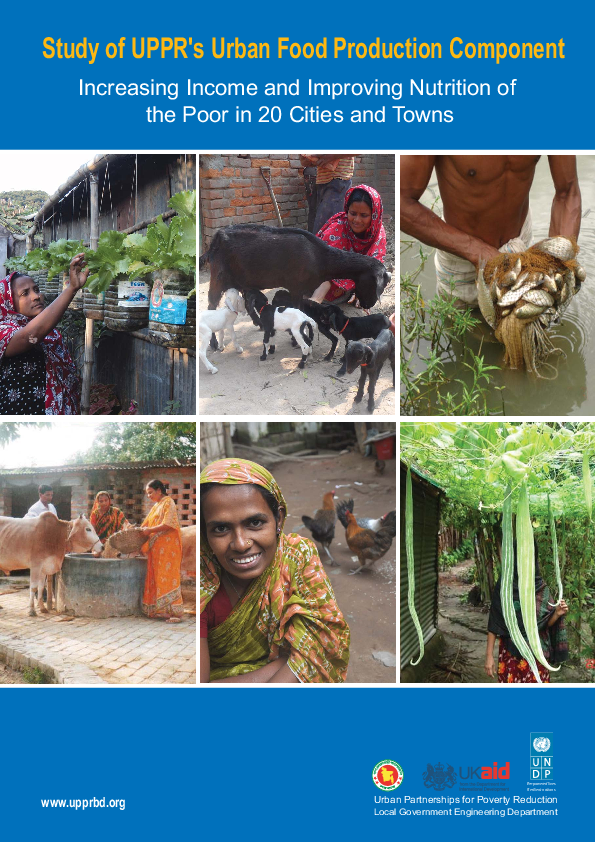Resources
Study of UPPR’s Urban Food Production Component Increasing Income and Improving Nutrition of the Poor in 20 Cities and Towns
Posted on March 01, 2012

Bangladesh is one of the most densely populated countries of the world. Due to rapid industrialization and population growth, its citizens are migrating every day from rural to urban areas to seek better income generation opportunities. Unable to break the poverty cycle, migrant soften times settle in low income settlements where guarantee in household food security remains a challenge. Some urban poor households are known to produce their own food as a coping mechanism to boost their nutritional status and increase their income. But until recently, such efforts have not been supported by any development or governmental organization. During 2006and 2007, under the Local Partnerships for Urban Poverty Alleviation Project, the Food and Agriculture Organization (Bangladesh) initiated technical support to about 1,500 households in starting selected urban food production activities in six towns. The successful results of this pilot were clearly visible but not documented thoroughly. Based on the success, Urban Partnerships for Poverty Reduction (UPPR), in 2009,conducted a survey to identify available resources in 23 of its project towns, finding that almost 35 percent of households had resources to produce food, such as empty space. Following this, UPPR introduced several packages to promote new and increase the productivity of existing practices. So far 60 thousand households have benefited. And this report showcases the results of a survey conducted to quantify these benefits. Chiefly, it presents the impact of UFP schemes on the nutritional status and income generation ability of poor urban communities. Like wise, the findings also serve to guide UPPR’s future UFP programming with the aim of reaching the urban poorest. The survey results can be used by a wide variety of stakeholders at the national and local level. The Local Government Division can advocate with other national-level institutions such as the Ministry of Agriculture, the Ministry of Fisheries and Livestock, and the Ministry of Forestry, to develop joint comprehensive urban food production strategies that target the poorest and optimize the use of available productive resources. Similarly, town-level policymakers such as Mayors and Ward Councilors can use the findings to initiate urban food production activities locally. Finally, academic and development partners may be able to improve their understanding on the scale and nature of UFP, and further explore a topic that has not been the subject of wide research in Bangladesh.